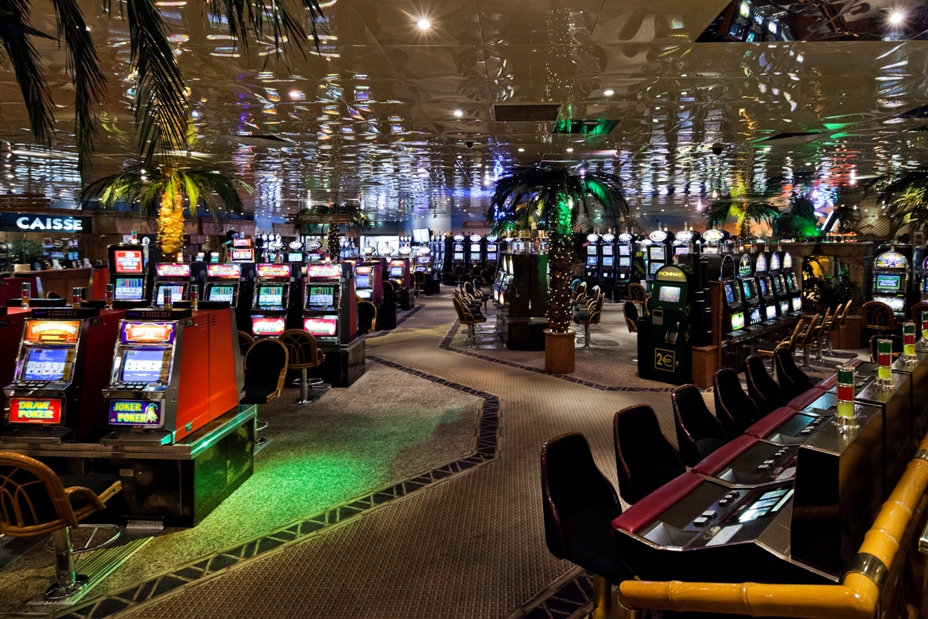
In the world of gambling, where chance and strategy converge, a unique tapestry of beliefs emerges—one that intertwines luck, fate, and the enigmatic nature of casino games. Casinos, bustling with excitement and anticipation, are not just places for placing bets; they are also arenas where superstitions thrive. kèo nhà cái Ranging from the novice player to the seasoned gambler, these mysterious practices often shape how individuals approach the games they play, believing that their actions can affect the outcome in ways that go beyond mere probability.
When players gather around roulette wheels, blackjack tables, and slot machines, the atmosphere is thick with stories of lucky charms, rituals, and codified behavior that defy logic yet provide a sense of comfort. It could be the case that it’s wearing a specific outfit, following a particular sequence of bets, or even avoiding certain numbers, the attachment to various superstitions reflects a deep-rooted desire to manipulate the uncontrollable. This article delves into the captivating world of casino game superstitions, investigating the beliefs that both entertain and mystify those who dare to play.
Historical Roots of Superstitions
Gambling activities have long been entwined with an host of superstitions that trace to early civilizations. The roots of these beliefs can be associated to humanity’s fundamental desire to control the random outcomes associated with fortune and randomness. In early civilizations, games of uncertainty were often connected to religious practices. Gamblers would call upon aid or request favor from spirits, believing that their actions could change the results in their benefit. This groundwork laid the groundwork for the myriad of superstitions that proliferated as gambling evolved over centuries.
During the medieval age, betting became a popular hobby across European nations, and with it, a diverse tapestry of superstitions emerged. Players adopted various rituals and charms, believing they could influence the consequences of games. The importance of numbers, in particular, started to appear in superstitions related to card games and dice. The number seven was often considered favorable, while different numbers carried unfortunate connotations. These notions mirrored the cultural contexts of the time, evolving as they passed through generations and changed to different gaming environments.
As casinos developed in the seventeenth century, particularly in the Italian peninsula and France, the atmosphere surrounding betting became steeped in mystique. The growing availability of gambling activities allowed for the spread and growth of superstitions among players. Concepts like lucky charms, designated seating locations, and rituals gained prominence, creating a distinct culture within betting houses. As these traditions continued to thrive, they became essential to the identity of gambling games, illustrating how history and society shape the belief systems that influence how participants interact with chance.
Common Gambling Myths
Beliefs surrounding casino games are plentiful and varied, mirroring the dreams and fears of players as they engage in chance-based games. One of the most prevalent views is that certain numbers bring fortune or bad luck. For example, the number 7 is often seen as a favorable number, frequently sought after by players looking for a favorable outcome. Conversely, the digit thirteen is routinely considered unlucky, leading many players to steer clear of it during their gaming sessions.
Another frequent belief relates to practices that gamblers believe can influence their odds. Whether blowing on the dice before a roll, using a specific gesture to place a bet, or even wearing specific items of clothing, many individuals feel that these rituals can tilt luck in their favor. These rituals offer a feeling of control in an otherwise unpredictable environment, reinforcing the idea that fortune can be manufactured through personal convictions and habits.
Lastly, the environment and vibe of the gambling house itself contributes to superstition. Many players suggest that the presence of certain icons, such as four-leaf clovers or lucky coins, can enhance their odds of winning. Additionally, players might adhere to the notion that victory streaks can be interrupted by mundane occurrences, such as a person walking past or a accident at the table. The collective atmosphere in a gambling house can amplify these beliefs, creating a shared culture of myths that transcends individual encounters.
Impact of Superstitions on Players
Beliefs play a significant role in the mindset of gamblers, often influencing their actions and choices. Numerous gamblers think that luck can be manipulated through various rituals, such as donning a talisman, selecting specific colors, or steering clear of particular digits. This reliance on superstitions can create a feeling of authority in an environment that is intrinsically unpredictable. Players often feel more self-assured and involved when they think that their actions could sway the result of a game in their favor.
The impact of these superstitions extends beyond individual players, affecting the overall atmosphere inside the casino. For example, a player who believes in the luck of a certain slot machine might draw a crowd, as onlookers are intrigued by their apparent success. This collective belief can heighten excitement and create a lively environment, leading to an captivating experience even for those who may not necessarily be believers themselves. The buzz around specific games can lead to increased participation and extended playing sessions, supporting the casino’s lively social scene.
In some instances, superstitions can lead to harmful effects for players. Depending too much on rituals can result in bad gambling decisions, as some may overlook basic strategies in favor of baseless beliefs. Additionally, the stress to perform rituals may heighten anxiety and stress levels, detracting from the enjoyment of the experience. Ultimately, while superstitions can enhance the thrill of playing casino games, they can also lead to unwise choices that overshadow the fun and entertainment intended in the casino experience.
